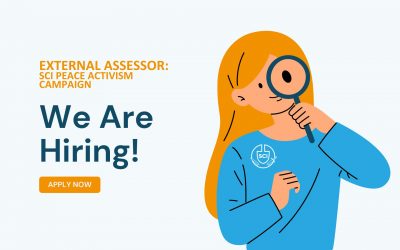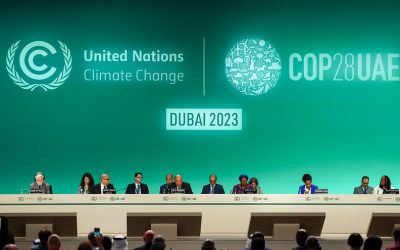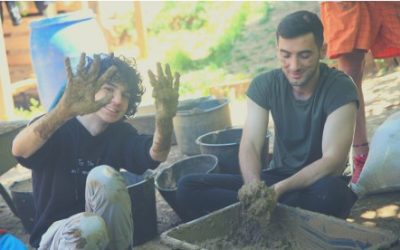Decolonise!
Building Equitative, Diverse and Environmentally Sustainable Long Term International Voluntary Service projects.
Several governments (e.g. in Germany, France) have national long term volunteering schemes in place. Additionally at the regional level, European Voluntary Service and the new European Solidarity Corps have boosted long term volunteering for European young people for many years. While many projects take place in Europe, a considerable amount of young people also volunteer in third countries or the Global South. Some national schemes also foresee some reciprocity (Weltwärts in Germany e.g.) but in general there is a big imbalance in long term volunteering and mainly young European volunteers go to volunteer in the Global South. Reciprocity can occur among equals, but often these relations carry the weight of a long history of exploitation. In addition, the inequality of exchange often leads to the perpetuation of colonial behaviours. Despite all efforts to prepare volunteers for their volunteering experience, a lot of young people still depart with “good intentions to help the poor community”. Receiving communities may also reinforce this problematic view, both for strategic opportunism or for the lack of an alternative discourse about entertaining relationships with former colonisers or people who look and act as such. Organisations in the Global North do not always have the tools to include a decolonial perspective in their organisation structure and programmes. That’s why CCIVS together with ICYE initiated the Decolonise IVS project which aims to build a new framework for decolonial thinking in International Voluntary Service Organisations (from now on IVS organisations) making them reflect on diversity, equality and environmental sustainability from an intersectional perspective.
Anthropogenic global warming, the lack of solutions concerning environmentally sustainable travel, and the COVID-19 pandemic have raised further questions about our volunteer programmes; their accessibility, their viability in face of these challenges, and also about climate colonialism. There are recurring questions about long distance travel and our environmental sustainability policy. The last year has brought more challenges to travel; including closed borders, implementation of certification systems and ‘green list’ countries. These systems will only continue to exclude young people and widen the chasm between those who fit into the ‘approved system’ and those who do not. A critical look at how the climate/pandemic challenges are part of the bigger debate on global justice will question existing exchange models and lead hopefully to innovative practices.
With Decolonise IVS, workcamp organisations seek for the first time to go to the heart of the debate around decolonisation and to understand more about continuing forms of neo-colonialism including climate colonialism. By asking ourselves difficult questions and putting these sensitive issues at the forefront of our work, it is time to reconsider whether long term volunteering projects, especially involving young Europeans going to volunteer in the Global South, can help to break down existing power structures or reinforce them.
Furthermore, the project seeks to prepare the young people to advocate for their right to volunteer, for the benefits of volunteering, and for truly reciprocal systems to be put into place, all the while paying attention to their inputs and taking into account that some may come from countries where volunteering has been allowed to exist because of its a-political veneer.
In SCI several seminars have been organised in line with this topic mainly by SCI Austria but now it is time to engage all in this important debate. The consortium set up by CCIVS and ICYE includes organisations from all volunteer networks (SCI, ICYE, IBO, Alliance, NAVO, NVDA and CCIVS as overall network) and has the ambition to really broaden this important discussion. SCI Belgium is a direct partner in the consortium while SCI International is an associated partner, allowing for a good communication flow between SCI branches and the overall core group of organisations taking part in the project.
After the kick-off meeting in Berlin in June, we now have fully started the implementation of the project. In September a series of online dialogues took place to explore some key concepts that are crucial for the discussion. A summary of these discussions will be available soon and some short videos will be created to explain these key concepts.
The key concepts brought up during the online dialogues are:
- Decolonisation
- Power and privilege
- Volunteering and International Voluntary Service
- Neo colonialism
- Intersectionality
- Global justice
- Diversity and culture
- Cultural appropriation/cultural humility
Following these online dialogues there will be a study session in Vienna from October 10th till October 15th 2022, to set the conceptual framework for the project and the action research. A group of 20 people involved in IVS organisations will come together to look at the outcomes of the online dialogues and to see how these concepts which were discussed in the online dialogues can be made more tangible in our organisations and networks. It is about finding out where we have room for improvement and identifying key areas of our work we have to analyse more.
This study session will set the ground for the participatory action research which will start in 2023. SCI Belgium together with Solidarité et Jeunesse from France are the lead organisations for this action research with the help of an external expert/researcher. The participating organisations will explore how their organisations are still influenced by colonial thinking or imbedded in neo-colonial structures. So, if you’re interested in the topic of decolonisation and thinking about the way our organisations can be made more diverse, inclusive and environmentally sustainable, maybe the upcoming study session can be a good start! Check out the call below!
What are the next steps?
- Online dialogue on decolonisation and IVS as a pre-ICM session (28/9/2022)
- Workshop during the upcoming SCI EPM ((10-15 Oct 2022) to share the work done so far and look at the next steps.
- Study session in Vienna (10-15 Oct 2022). There are still some places available! Find here the link to the call.
- Meet the Decolonise Think tank! (November) Meeting with some of the experts who are guiding us in this important reflection process.
- February 2023 (Belgium): Training for peer researchers (getting familiar with the participatory action research and defining the research plan)
- February 2023 (France): Advocacy training to support our advocacy ask and the changes we want to see.
For more information contact: marie@scibelgium.be or sciingrid@gmail.com

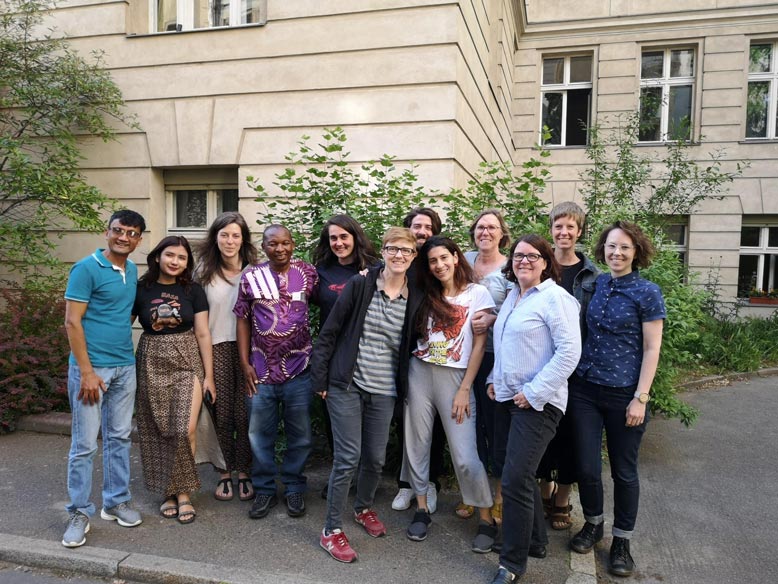
Kick off meeting in Berlin
picture taken by Bhupi from VIN Nepal
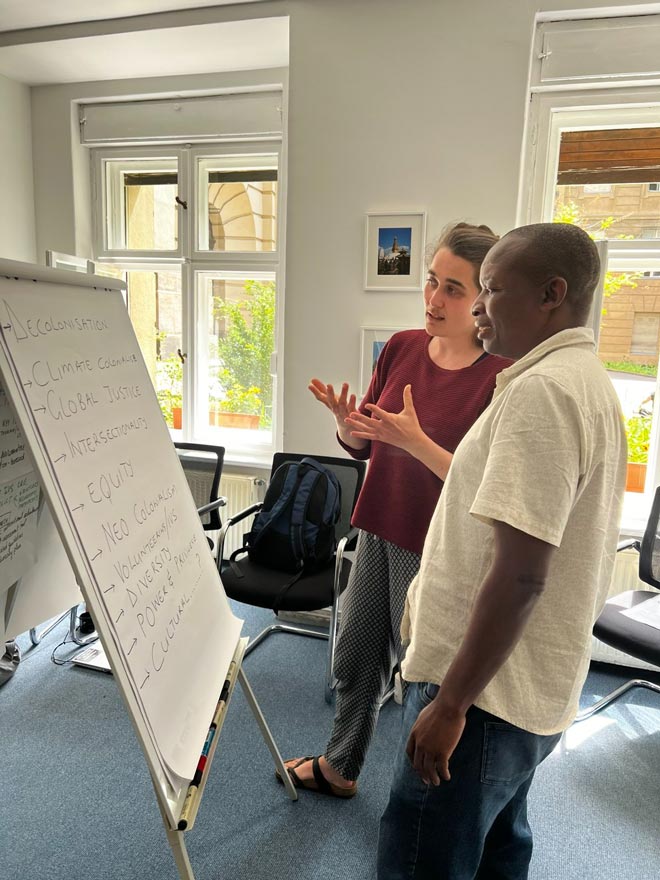
Daniela from Grenzenlos Austria and Ratherford from Zimbabwe workcamp Association discussing about the set-up of the online dialogues.
Photo taken by Bhupi from VIN Nepal
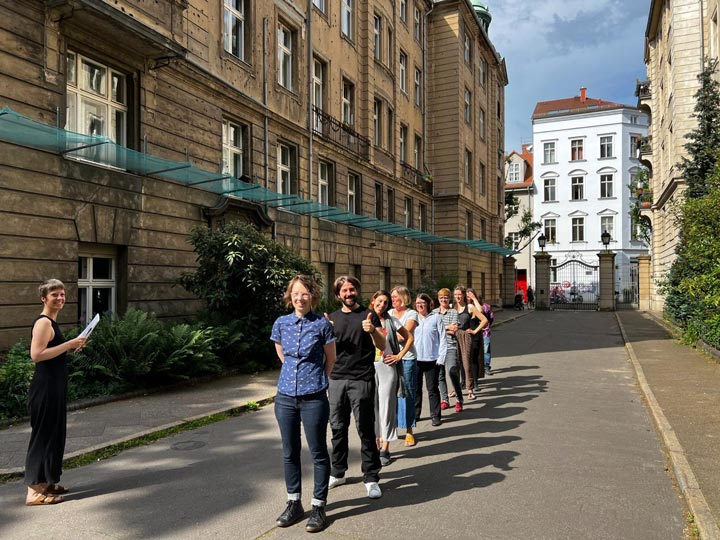
Marie from SCI Belgium facilitating one of the activities from the Resource pack of SCI Austria
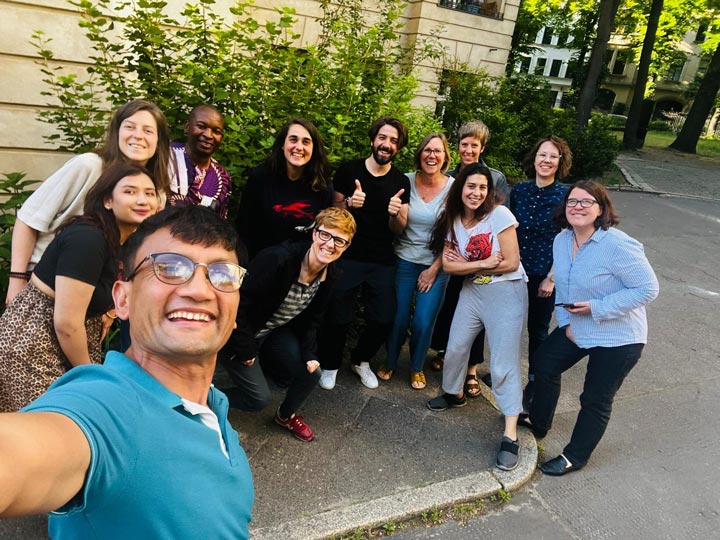
Group picture taken by Bhupi from VIN Nepal
Explore more news
Call for external assessor: SCI Peace Activism Campaign
Service Civil International is contracting an independent expert to assess peace activism actions of its Branches and Groups in light of the establishment of a common global SCI Peace Activism Campaign. Read the call and apply by 1 February 2024.
COP28: reflections of an activist
SCI/IVS member, Rob Unwin, attended COP28 as an online observer. Read his reflections on this important climate conference which determines the future of our planet.
Gaia Kosovo is looking for long-term volunteers
Gaia Kosovo is looking for 2 volunteers for a long-term volunteering project (6 to 9 months) to assist in various tasks related to environmentalism in the Bozevce village in Kosovo 🍃 About the hosting organisation GAIA is a non-governmental organization dedicated to the culture of peace, social and environmental justice and sustainable living. The main activities of GAIA are international...

